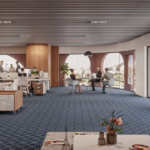Support for participants who need to live away from home for a brief length of time is known as short-term accommodation, and it can be utilized to provide caregivers and participants with a break. In essence, Short Term Accommodation in Sydney seeks to provide participants with the financial resources to cover the costs of lodging, meals, activities, and care that can all be bundled into a single stay away from their primary location. But when you go into the specifics, it becomes clear that things with the NDIS are more complicated than they first appear. What is evident is this:
- A participant’s money for Core Supports is used for STA.
- Since it is typically funded at a group rate, they are more inclined to accept STA claims from certain providers who accommodate several participants at once.
- Price caps for all support items, including all costs incurred during the 24 hours, such as lodging, food, and negotiated activities, as well as help with self-care or community access activities, must be taken into account in STA invoices.
- If a participant has STA included in their plan, they will get funding for up to 28 days of lodging annually; however, they can only reserve rooms for up to 14 days at a time. A participant may reserve two 14-day visits (or anything in between) or multiple stays of two or three days during any given year.
- Even if a participant’s plan does not specifically state that STA is required, they may still be able to pay for it if it meets the following criteria: it is pertinent to their disability; it supports their goals; it fits the reasonable and necessary criteria; and it shows value for money, including proof of savings for any daily supports that are only partially provided, like skipping meals or activities.
Although the NDIS aims to provide participants with choice and control, in practice, this means that if their requirement for Short Term Accommodation in Sydney isn’t made explicit in their Plan, their NDIA planners will have to decide what constitutes reasonable and essential STA.
In cases where STA is not specified in a plan, participants, plan managers, or support coordinators must contact the appropriate NDIA planner.
How NDIS Decides Short-Term Accommodations?
The following things must be understood while thinking about NDIS short-term accommodations:
- A person’s handicap makes an NDIS short-term accommodation necessary.
- It helps one reach their objectives.
- It makes community involvement easier.
- Short-term NDIS housing is reasonably priced and provides value.
- The degree of assistance extended by relatives and unofficial sources.
Short-term NDIS accommodation funding may be taken into consideration if:
- Assistance might be provided for an extended period by family or unofficial sources.
- Expected decline in the need for help in the future.
- It helps to keep one’s ability to function.
- It improves self-reliance.
- It makes it possible to engage in a variety of activities.
NDIS short-term accommodations would not be covered by funding for:
- In circumstances where informal or familial support is adequate for a longer period,
- Situations in which anticipated future assistance requirements could drop.
- Situations in which preserving functional ability is the key objective.
- Scenarios in which gaining more independence is the goal.
- Activities that make it possible to participate in a wider variety of activities.
Employee Education and Assistance
The calibre of personnel and the extent of assistance they offer can have a big influence on your NDIS short-term lodging experience. Make certain that the personnel has received the necessary training to support people with disabilities. They ought to be competent in giving the right kind of care and assistance and should be aware of the particular requirements of the participants. To be sure you’ll get the care and attention you need while visiting, you might ask about the staff-to-participant ratio.
Programs and Activities
The provision of activities and events in Short Term Accommodation in Sydney that might enhance your stay and meet your needs and interests is a crucial component of short-term accommodations. Ask about the variety of activities available at the institution and if they suit your interests. Think about if the establishment provides an opportunity for visitors to the Sunshine Coast to experience the area’s natural beauty and recreational offerings. Your stay can be both fulfilling and fun with the help of interesting programs.
Specialised Care in Short Term Accommodation
Here at Accessible & Short-Term Accommodation, our guests’ health and happiness come first. Providing specialised care and support to individuals with diverse disabilities forms the core of their service offering. The breadth of services provided by NDIS Sunshine Coast short-term accommodation providers demonstrates their dedication to providing high-quality healthcare, guaranteeing that participants receive the outstanding care they are entitled to.
In order to guarantee the best possible care, Accessible & Short-Term Accommodation employs both Registered Nurses and Support Workers, ensuring that people under NDIS Short Term Accommodation in Sydney receive the expert care they require; this level of professional support is especially helpful for those with high needs and specialised pediatric requirements. Visitors can relax knowing that skilled personnel are handling their medical and healthcare requirements.
Conclusion
For a variety of requirements, including travel, employment, or relocation, Short Term Accommodation (STA) provides adaptable, short-term housing options. For many looking for short-term housing, its cost, variety of possibilities, and ease of use make it the perfect alternative.







